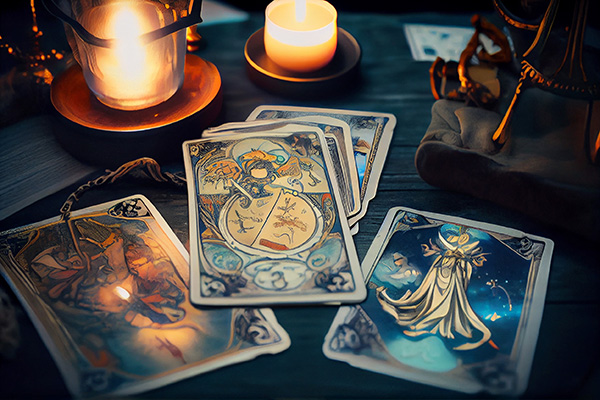unconditional love
From Resentment To Radiance: The Power Of Forgiveness
 As a Kundalini yoga instructor, I’ve come to understand forgiveness as much more than just an act of kindness or compassion. It is a sacred healing practice — an essential release and transmutation of toxic energy held within the subtle body.
As a Kundalini yoga instructor, I’ve come to understand forgiveness as much more than just an act of kindness or compassion. It is a sacred healing practice — an essential release and transmutation of toxic energy held within the subtle body.
My work as a Reiki healer and psychic reader has deepened my understanding of this concept. I’ve witnessed firsthand how unresolved emotional pain, bitterness and resentment can create stagnation in our energetic pathways, dimming our vitality and obstructing our intuitive abilities.
In both healing sessions and psychic readings, I’ve seen forgiveness spark remarkable shifts in people’s physical, mental, emotional and spiritual well-being.
In the Kundalini Yoga tradition, forgiveness is not merely a moral ideal. It is a profound energetic cleanse. When we cling to resentment, anger, or betrayal, we create dense energy imprints, or emotional residue, in our aura and chakras, especially around the heart center (Anahata). These blockages disrupt pranic flow, dull intuitive perception, and limit our capacity to experience divine love.
My yoga teacher, Yogi Bhajan, often reminded us that the fastest route to healing and happiness is to forgive completely and limitlessly. He taught that true forgiveness requires releasing the subconscious “recordings” and emotional patterns etched into both hemispheres of the brain — patterns that replay pain and perpetuate karmic loops. “Forgive, release, learn, love, and excel,” he would say. Continue reading
When Walking Away Is A Sacred Act of Love
 One of the most life-changing truths we come to face on the spiritual path is this: not everyone is meant to walk with us all the way.
One of the most life-changing truths we come to face on the spiritual path is this: not everyone is meant to walk with us all the way.
As we awaken and align more closely with our authentic self, some relationships begin to fall away. While it’s natural to resist this because endings hurt and change can feel like loss, there is a quiet, sacred truth beneath it all: Letting go is often an act of love.
As your soul expands, you begin to see your relationships differently. They are no longer just emotional bonds or physical connections; they reveal themselves as soul contracts—agreements made on a spiritual level before you ever met people in the physical realm.
Some people come into your life to uplift you, to love you, and to walk beside you for the long haul. Others arrive to teach you about boundaries, self-worth, and discernment. Once their role is complete, the relationship may start to feel heavy, strained, or even harmful. This isn’t failure; it’s a sign that the contract has been fulfilled.
Yet, this part of the journey is rarely discussed. In spiritual circles, we often hear messages about unconditional love, compassion, forgiveness, and acceptance. These are indeed sacred spiritual principles. But we rarely hear the equally sacred teaching that sometimes the most loving thing you can do is walk away!
Letting go of a toxic or misaligned relationship is not abandonment or selfishness. It’s not also not a sign of weakness, cowardice, or a lack of spiritual depth. In fact, it often requires more courage and clarity than staying.
The Soul Legacy Of A Life Well-Lived
 It is natural for spiritually aware people to reflect on the lives we live and the impact we have on the world. We often ask ourselves, are we making a difference? Is our contribution meaningful? How well are we serving our family, community, nation, environment, spirit, the divine?
It is natural for spiritually aware people to reflect on the lives we live and the impact we have on the world. We often ask ourselves, are we making a difference? Is our contribution meaningful? How well are we serving our family, community, nation, environment, spirit, the divine?
Some people’s legacies are marked by awards, innovations, or public achievements. Some live their lives as great inventors, artists, scientists, philosophers, activists, spiritual leaders, leaving a measurable trail of impact to make the world a better place.
The names of those with such remarkable legacies are etched in history books, and their contributions change the course of societies and industries. We witness their contributions in news headlines and biopics, and learn about them in books and classrooms.
But these remarkable individuals represent only a small minority of humanity. What about the rest of us?
What about those of us who get up every day, not to chase fame or fortune, but to fulfill the humble, yet noble responsibilities of everyday life — raising children, maintaining a home, showing up for work with integrity, running a small business with courage, caring for neighbors, rescuing animals in need?
For most spiritual seekers, our life’s legacy is not about accolades or recognition. It is simply a reflection of the heart, a matter of daily presence, generosity, kindness and compassion, and the quiet ripples of goodness we send out into the world.
We Can’t Always Rescue The Ones We Love
 A topic that often comes up in psychic readings is the client’s concern for someone they love – a child, significant other, sibling, close friend, or even a co-worker.
A topic that often comes up in psychic readings is the client’s concern for someone they love – a child, significant other, sibling, close friend, or even a co-worker.
The problem? Usually the person has chosen a path that is confusing, destructive, or even life-threatening: substance abuse, toxic relationships, unwise career moves, or a lifestyle that just doesn’t make sense to the onlooker.
If you’re nodding your head right now about someone in your own family or circle of friends, you’re not alone. We’ve all been there – watching someone we love make free will choices that, from our perspective, can only lead to pain, loss, or utter disaster.
Maybe they have moved in with someone who is controlling and abusive, or they dropped out of college to move across the country and get married to someone they hardly know. Or maybe they are determined to put their life savings into a shady Ponzi scheme. Maybe they keep repeating choices and patterns that seem so clearly wrong for them.
Maybe you’ve seen the red flags from day one, and your heart is already aching with a kind of spiritual déjà vu…because you know what’s coming. And yet…you feel powerless to stop it.
This is where spiritual teachings can offer both comfort and perspective. According to many wisdom traditions, it’s often the most painful, confusing, or seemingly misguided paths that lead to the greatest soul growth. Sometimes a person must walk through fire or descend into darkness to find their light. And as difficult as that is to witness, it may very well be part of their soul plan.
The Tarot Is A Mystical Bridge To Spiritual Insight
 Mysterious, symbolic and highly energetic, the Tarot is a high vibrational tool that can help us explore the deeper meaning behind the events of our daily lives, and the influence of Spirit in our earthly existence.
Mysterious, symbolic and highly energetic, the Tarot is a high vibrational tool that can help us explore the deeper meaning behind the events of our daily lives, and the influence of Spirit in our earthly existence.
The Tarot especially offers guidance in situations where may feel lost or confused, and it serves as a mystical bridge between our physical reality and the metaphysical realm.
The cards have their own energy, a high vibrational frequency, which Spirit uses to communicate messages of guidance, encouragement, insight and caution.
Every Tarot reader has their own set of spiritual gifts and psychic abilities, and therefore we tend to each develop our own reading style accordingly.
In my own readings, I find that Spirit most often seeks to illuminate areas in our lives where changes and healing may be needed, in order to bring about the most beneficial future outcomes. This can be anything from the need to shift one’s perspective, to the need to let go, or sometimes the need to simply accept things as they are.
Ultimately, I find Spirit uses the Tarot to get us ‘unstuck,’ so we get back in the flow. When we are in the flow, or in alignment, we are creating with the Universe, instead of creating resistance. Only then are we truly moving toward our highest good and the fulfillment of our greatest potential.
The Tarot is a conduit for communication with our guides and our higher self, through which we can gain a deeper understanding of the soul lessons and the magic happening in our lives.
What It Really Means To Live A Spiritually Aware Life
 It doesn’t matter who you are or what you do for a living. It doesn’t matter how much money you make, how popular you are, where you live, or how attractive others find you. None of these things define your true worth, and none of them guarantee the fulfillment of your life purpose and soul plan.
It doesn’t matter who you are or what you do for a living. It doesn’t matter how much money you make, how popular you are, where you live, or how attractive others find you. None of these things define your true worth, and none of them guarantee the fulfillment of your life purpose and soul plan.
In the end, your spiritual wealth transcends any bank balance. The only bling that really matters is how much your soul shines from within!
Many of the most beautiful, caring, thoughtful, compassionate, and charitable souls walk quietly among us — unrecognized by the world’s superficial standards of success. They may not be rich. They may not be famous. They may not wear designer clothes or have thousands of social media followers. And yet, they truly shine!
What really matters is how you treat others, how you live your life, and how you embody your higher self and the light of of your soul in everyday moments. That is what counts in the eyes of God, Source, Spirit, the Divine. The essence of your spirit, not your resume or your reflection in a mirror, is what will leave your legacy in this lifetime.
The essence of this truth echoes throughout the world’s spiritual traditions, reminding us that attachment to wealth, superficial pleasures and material status can become hindrances to our spiritual journey and soul growth.
In Hinduism, for example, the Bhagavad Gita teaches that only those who see the divine in all beings and remain unattached to sense pleasures will find lasting peace. Similarly, in Buddhism, the Dhammapada warns that wealth can ruin the foolish, and the desire for wealth becomes an obstacle to enlightenment. The Buddha taught that spiritual liberation requires renunciation of attachment and the cultivation of inner clarity.
What You Should Know About Spiritual Awakening
 We live in a world that worships results. We proudly proclaim them: “I lost twenty pounds,” or “I was voted employee of the month.”
We live in a world that worships results. We proudly proclaim them: “I lost twenty pounds,” or “I was voted employee of the month.”
Tangible achievements deserve recognition. But in the spiritual realm, such milestones don’t exist in the same way. The universe does not operate according to human rules. The metaphysical realms cannot be measured by physical standards.
This is why when it comes time for us to experience a spiritual awakening — also known as an epiphany, illumination or inner shift — there is no outward certificate of success. It’s not something that can be counted or checked off a list. It happens organically, quietly, often unpredictably. And when it comes, it is only the beginning.
Think of it as a small ball of snow set in motion at the top of a hill. As it rolls down, it grows larger and more powerful, accumulating mass and momentum. That’s what spiritual awakening does: it starts with a whisper and becomes a roar. The journey that follows isn’t always easy, but it’s always worth it.
But what exactly is a spiritual awakening? At its core, spiritual awakening is the moment when you begin to perceive reality through a higher, expanded lens. It is a fundamental shift in consciousness — a sudden or gradual realization that there is more to life than what meets the eye.
A sudden awakening is known as “satori” in Zen Buddhism — a sudden moment of awakening or enlightenment. Satori is a flash of insight into the true nature of reality—an experience where the ego momentarily drops away, and one perceives life with profound clarity and unity.